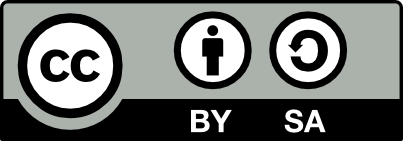Armitage, H. (2018). AI matched, outperformed radiologists in screening X-rays for certain diseases. Medical Xpress. https://medicalxpress.com/news/2018-11-ai-outperformed-radiologists-screeningx-rays.html [12.20.2020].
Asimov, I. (1950). I, Robot. London: Dobson.
Bostrom, N. (2002). Existential Risks: analyzing human extinction scenarios and related hazards. Journal of Evolution and Technology, 9. http://jetpress.org/volume9/risks.html [12.20.2020].
Bostrom, M. (2006). How long before superintelligence? Linguistic and Philosophical Investigations, 5(1), 11-30.
Bostrom, N. (2014). Superintelligence: Paths, Dangers, Strategies. Oxford: Oxford University Press.
Butein, M. (2019). Towards Intelligent Regulation of Artificial Intelligence. European Journal of Risk Regulation Vol. 10, Iss. 1, 41-59.
Chomsky, N., Schützenberger, M.-P. (1963). The Algebraic Theory of Context-Free Languages. [in:] Computer Programming and Formal System. (Eds.) Braffort, P., Hirschberg, D. Amsterdam: North Holland Publishing Company. 118-161.
Collins Dictionary. (nd.), https://www.collinsdictionary.com [12.20.2020].
Cyranoski, D., Gilbert, N., Ledford, H., Nayar, A., Yahia, M. (2011). Education: The PhD Factory. Nature 472, 276-279. https://doi.org/10.1038/472276a.
The Editors of Encyclopaedia Britannica. (nd.). Science. Encyclopaedia Britannica, https://www.britannica.com
Feynman, R. (1982). Simulating Physics with Computers. International Journal of Theoretical Physics Vol. 21, No. 6/7, 467-488.
Gupta, A., Govindarajan, V. (1991). Knowledge Flows and the Structure of Control Within Multinational Corporations. The Academy of Management Review Vol. 16, No. 4, 768-792. https://doi.org/10.5465/amr.1991.4279628.
Hochschild, A.R. (2003). The Managed Heart: Commercialization of Human Feeling. Berkeley–Los Angeles: University of California Press.
Hodson, H. (2019). “DeepMind and Google” the battle to control artificial intelligence. Economist 1843. https://www.economist.com/1843/2019/03/01/deepmind-and-google-the-battle-to-control-artificial-intelligence [12.20.2020].
Iphofen, R., Kririkos, M. (2019), Regulating artificial intelligence and robotics: ethics by design in a digital society, Contemporary Social Science.
Kızrak, A. (2019). AI vs. Lawyers: The Future of Artificial Intelligence and Law, Interesting Engineering Blog, https://ayyucekizrak.medium.com/ai-vs-lawyers-the-future-of-artificial-intelligence-andlaw-3c48d61eb2e.
Kwok, R. (2017). Flexible working: Science in the gig economy. Nature 550, 419-421. https://doi.org/10.1038/nj7676-419a.
The Legal Tech Blog. (2017). AI in Law: Definitio, Current Limitations and Future Potential. https://legal-tech-blog.de/ai-in-law-definition-current-limitations-and-future-potential.
Lehoux, D. (2011). Natural Knowledge in the Classical World. [in:] Wrestling with Nature: From Omens to Science. (Eds.) Shank, M., Numbers, R., Harrison, P. Chicago–London: The University of Chicago Press. 37-58.
Lightman, B. (2011). Science and the Public. [in:] Wrestling with Nature: From Omens to Science. (Eds.) Shank, M., Numbers, R., Harrison, P. Chicago–London: The University of Chicago Press. 337-376
McCombs, D. at al. (2020), Navigation A New Realm: AI and Patent Law. Law.com. https://www.law.com/legaltechnews/2020/07/16/navigating-a-new-realm-ai-and-patent-law/?slreturn=20210007091827 [12.20.2020]
Merriam-Webster. (nd.) https://www.merriam-webster.com/dictionary/feeling [12.20.2020].
Miller S. (nd.). Part II: The Future of Artificial Intelligence, Thomson Reuters. https://legal.thomsonreuters.com/en/insights/articles/future-of-artificial-intelligence-robot-lawyer-army-or-not.
Moravec, H. (1998). When will computer hardware matches the human brain? Journal of Transhumanism Vol. 1, 10-22.
Müller, V.C., Bostrom, N. (2016). Future Progress in Artificial Intelligence: A Survey of Expert Opinion. [in:] Fundamental Issues of Artificial Intelligence. (Ed.) Müller V.C. New York: Springer. 553-571.
Niveau, G. (2004). Preventing human rights abuses in psychiatric establishments: The work of the CPT. European Psychiatry Vol. 19, Iss. 3, 146-154. https://doi.org/10.1016/j.eurpsy.2003.12.002.
Numbeo. (2020). Quality of Life Index by Country 2020. https://www.numbeo.com/quality-of-life/rankings_by_country.jsp.
Pattinson, D. (2015). The Human Rights Act and the doctrine at precedent. Legal Studies Vol. 35, No. 1, 142-164. https://doi.org/10.1111/lest.12049.
Poole, D., Mackworth, A., Goebel, R. (1998). Computational Intelligence: A Logical Approach. New York: Oxford University Press.
Regan T. (1985). The Case for Animal Rights. [in:] In Defence of Animals. (Ed.) Singer, P. New York: Basil Blackwell. 13-26.
Santos-Lang, C. (2014). Our responsibility to manage evaluative diversity. ACM SIGCAS Computers & Society Vol. 44, Iss. 2, 16-19.
The Science Council. (nd.) Our definition of a scientist. https://sciencecouncil.org/about-science/our-definition-of-a-scientist/
Słownik języka polskiego pod red. W. Doroszewskiego. (nd.), https://sjp.pwn.pl/doroszewski/naukowiec;5456600.html [12.20.2020].
Spindler G. (2019). Copyright Law and Artificial Intelligence. IIC – International Review of Intellectual Property and Competition Law Vol. 50, 1049-105. 1https://doi.org/10.1007/s40319-019-00879-w.
Switzerland’s Long Way to Women’s Right to Vote (nd.). Female Suffrage. http://history-switzerland.geschichte-schweiz.ch/chronologywomens-right-vote-switzerland.html [12.20.2020].
Thomas G. Carpenter Library. (nd.). What is Original Research? Original research is considered a primary source, University of North Florida, https://web.archive.org/web/20110709085129/http://www.unf.edu/library/guides/originalresearch.html.
Thomas, J. (2016). In defence of philosophy: a review of Nick Bostrom, Superinteligence: Paths, Dangers, Strategies, Journal of Experimental & Theoretical Artificial Intelligence Vol. 28, Iss. 6, 1089-1094.
Vesilind, P.A., Gunn, A.S. (1998). Engineering, ethics, and the environment. Cambridge: Cambridge University Press.
Williams, M. (1996). Truth. Encyclopaedia of Philosophy. Ann Arbor: Macmillan.
Wilson, E.O. (1999). “The natural sciences”. Consilience: The Unity of Knowledge. New York: Vintage.
Winiger A. (2020). Shenzhen Court Rules AI-Generated Articles are Entitled to Copyright Protection. https://www.slwip.com/resources/shenzhen-court-rules-ai-generated-articles-are-entitled-tocopyright-protection/?bclid=IwAR3jKT9xnRLxvh71mXss8VwSUbuuRjZU9XLE-DlQ0gQlnTq_lEKU52q9UhA.
